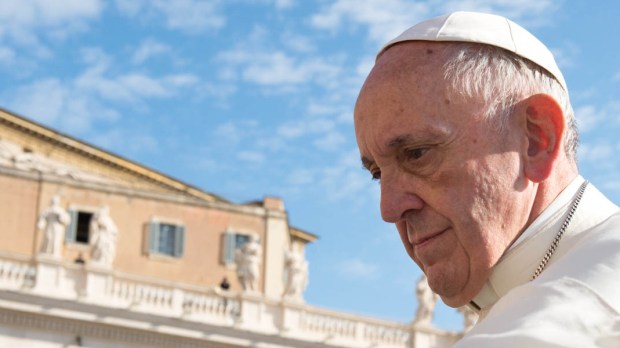Democracy, even if it has been established for generations, is never guaranteed to stay fully in force. In fact, fighting for democracy is, in Latin America today, one of the priorities for Christians.
This is the observation made by the pope himself, in a book-length interview in which he takes up questions about his home continent.
The 198-page book (so far only in Spanish) by journalist Hernán Reyes Alcaide reflects, according to the writer, some of the main concerns of the pope, as he shares his views on issues ranging from young people to women, prisons, ecumenical and interreligious dialogue, and environmental protection.
Regarding the Holy Father’s point on democracy, Professor Guzmán Carriquiry, secretary of the vice president of the Commission for Latin America, said during a Vatican presentation of the book that “democracy can become nominal. Every political system, if it’s not cared for and maintained, tends to degrade.”
“That may happen when it is degraded by corruption,” he said, “or by the confusion of powers—whether because there is little separation between the powers of government, or because one gains power over the others.”
A periphery?
The book is the result of a series of meetings with Francis at the Casa Santa Marta, during which the pontiff discussed the 10 years since the Fifth Conference of the Latin American Episcopate, in Aparecida, Brazil.

Read more:
The Aparecida Document: What you need to know
One of the novelties offered by the book is Bergoglio’s current perspective from his position as pope. “Pope Francis tends to speak a lot about the center-periphery relationship, about how the center is observed more clearly from the peripheries. The idea [in this book] was to invert those terms, and ask the pope, from the center (the Vatican): What do the peripheries look like? That is to say, his beloved Latin America,” explained Reyes Alcaide.
This context coexists with the paradox of the Americas being considered a “periphery” in the Church, even as half of the world’s baptized Catholics live there.
In fact, some 49 percent of the baptized of the globe live in the area ranging from Alaska down to Tierra del Fuego.
New generations
The journalist noted that the pope was particularly receptive to talking about some questions especially. “He seemed to be to be ‘very preoccupied,’ in a good way, when he spoke about young people; ‘pre-occupied,’ as the word indicates, meaning here to occupy oneself with something before things happen, perhaps a preoccupation more similar to prevention and foresight.”
In short, the pope has a “hopeful perspective” on the Americas, which translates into working on “concrete aspects.”

